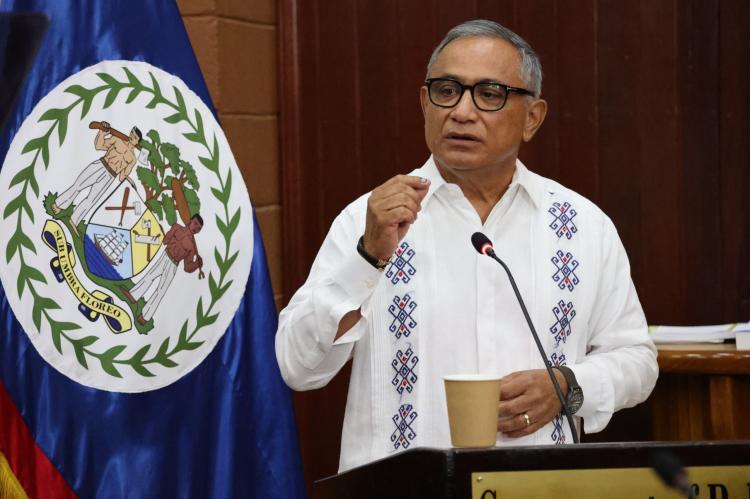The Coming Shockwave: How Global War and Local Greed Will Cripple Belizean Households
By: Omar Silva I Editor/Publisher
National Perspective Belize I Digital 2025
Belize City: Tuesday 24th June 2025
As the world braces for the fallout from the United States and Israel's direct military aggression against Iran, Belize remains blissfully asleep at the wheel—led by a government that treats its people not as citizens, but as a cash cow.
The geopolitical situation is dire. Iran, under siege and cornered, is now actively considering the closure of the Strait of Hormuz—a critical choke point through which nearly a third of the world’s oil supply flows. If closed, oil prices could skyrocket overnight, leading to a new global inflationary wave. The Briceño Cabinet is scheduled to meet tomorrow to “discuss” the potential fallout, but this comes after years of deliberate indifference to the plight of Belizeans suffering under one of the most regressive fuel tax systems in the region.
Let’s be clear: Belizeans are already paying close to $14 BZD per gallon at the pump. What the Briceño government doesn't want you to fully realize is that roughly 45% of that price is direct government tax. Yes—nearly half of what you pay to fuel your vehicle goes into government coffers. And what’s worse? It’s not being reinvested into infrastructure, education, or healthcare—it’s being used to service foreign debt and uphold a bloated, politically appointed bureaucracy.
Post-Pandemic Price Rigging
After the COVID-19 pandemic, global oil prices dropped significantly. Did fuel prices fall in Belize? No. When asked by the press why relief wasn’t passed on to consumers, then-Minister of State Chris Coye boldly admitted that lowering pump prices was not an option, because the government needed the revenue to pay debts. In essence, the administration chose bondholders over breadwinners.
And now, on the brink of a fresh global oil crisis, there are no buffers, no subsidies, and no plan.
Propane: A Nationalized Cash Cow
The situation with Liquid Petroleum Gas (LPG) is no different. The government unilaterally nationalized the importation of propane—shutting out three private importers—and is now embroiled in litigation for breach of contract and loss of investment. Why? Because propane, too, has become a lucrative source of government revenue.
Every kitchen in Belize, every restaurant, and every small bakery now pays inflated prices on cooking gas to support a government enterprise that is more concerned with profit than public service.
The Next Inflation Shock is Here
If Iran acts, if oil spikes, Belizeans will once again bear the brunt. Not the Ministers. Not the CEOs in their chauffeured vehicles. You—the ordinary citizen, commuter, and small business owner—will feel it at the pump, in your groceries, in your electricity bill, and in your rent. A new wave of inflation looms, and with a government addicted to taxing fuel, there is no shield between you and the coming shockwave.
Currency Crisis Waiting to Happen
To make matters worse, Belize’s currency remains pegged to the U.S. dollar at a 2:1 rate. While this gives the illusion of stability, it leaves Belize completely exposed to U.S. monetary policy and inflation. If fuel prices spike, and the U.S. dollar fluctuates, our entire import-reliant economy will reel from the impact.
And yet, the Briceño administration continues to operate as if nothing is wrong—using state finances to reward loyalists, approve million-dollar contracts without tenders, and fund pre-election political survival schemes.
Conclusion: A Government That Feeds Like a Parasite
We are living under a government that feeds on the people like a cancerous parasite—draining us through fuel taxes, utility hikes, and failed nationalizations. Tomorrow’s Cabinet meeting will be nothing more than political theater unless it results in a serious rollback of fuel taxes and a protection plan for the Belizean household.
But don’t hold your breath. History shows us that when global prices go up, the Belizean government cheers—not because it’s good for the country, but because it means more for them.
- Log in to post comments

